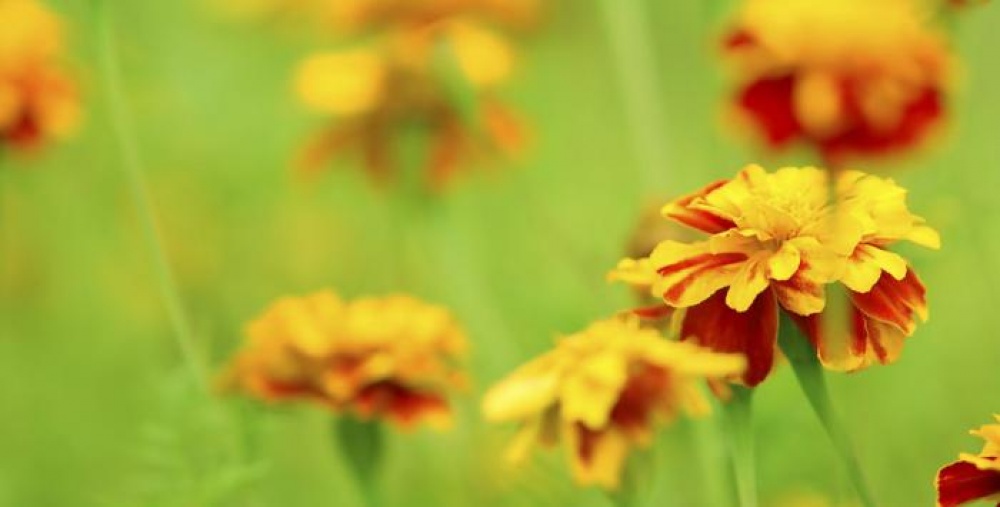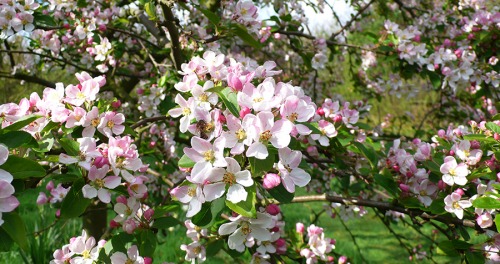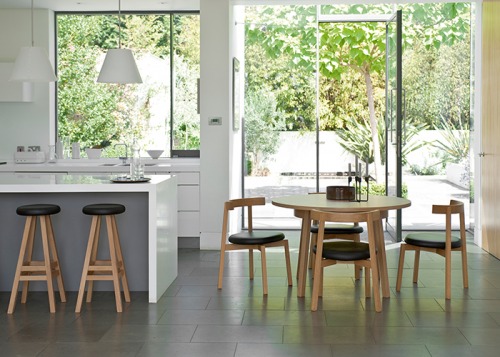How to Grow Your Own Vegetable Garden

A vegetable garden is hugely rewarding if managed properly. We sow the seeds of spring with RHS Harlow Carr
These tides of yellow and white only give way to the beautiful blooms of Magnolia in April, and the uprise of valiant tulips in a range of kaleidoscope colours. By May, British Bluebells will carpet the Woodland in a swathe of indigo blue, and wildflower meadows begin to buzz with life.
Although these iconic blooms are redolent of the season, for the horticulturists in Harlow Carr’s productive team, spring is all about the Kitchen Garden, which has been sitting silently over winter, waiting in anticipation for the growing year ahead. If you already grow your own produce you have probably been waiting eagerly for the first day of sowing; that immensely pleasurable task of pushing the first seeds into the ground and watching as only days later shoots thrusts themselves from the earth; one of the most natural yet magical processes there is.
If you’ve been dreaming about podding home-grown peas and scrubbing muddy potatoes, then now is the time to get growing; you can’t match the sense of fulfilment from feeding family and friends with food you’ve seen from plot to plate.
Starting from scratch can be quite daunting and sometimes the hardest task is choosing what to grow. Garden centres can be quite overwhelming; walls of seed packets, plant names and a variety of compost to choose from can all make it a bit confusing and before you know it you’ve bought seeds for a vegetable you don’t even like. A good starting point is to simply ask yourself what you enjoy eating, it should be straight forward from there. Broad beans, carrots, parsnips, beetroot, radish, spinach, Swiss chard and kohl rabi are just some of the vegetables that can be sown directly outdoors in March, be guided by the weather though as most seeds won’t germinate below a ground temperature of 7°C. You could also plant onion, shallot and garlic sets, Jerusalem artichoke tubers and asparagus crowns.
You should always refer to the instructions on your seed packets when sowing, but as a rough guide you usually need to start by making a shallow trench (called a drill) with a hand trowel. Place your seeds within this drill and cover with soil, lightly press down and water. Try to sow evenly and thinly too, as this will give crops a good spacing and will avoid excessive thinning later on.
Although we’re used to the uniform displays of fruit and vegetables in supermarkets – all perfectly formed, neatly trimmed and over packaged in cellophane and plastic – the reality of growing your own is that your crops will be individual. You’ll experience the true shapes, colour and textures often lacking from mass-produced fare and, more importantly, you’ll enjoy the full, fresh flavour which comes with home-grown food, even if your carrots are crooked.
With the attitude ‘it’s what’s inside that counts’, the productive team at Harlow Carr are growing old varieties of tomatoes this year. Unusual in shape and not necessarily attractive, these tomatoes are brimming with flavour, making up in taste what they lack in looks. If you have a glasshouse or even just a conservatory you could also think about growing your own tomatoes, as well as chillies and peppers – perfect ingredients for a zesty salsa. Visit Harlow Carr’s glasshouses for inspiration and track the progress of heritage varieties, including Amarillo, Tartar from Mongolistan, Snow White and Red Grape Sugar Plum.
As the days lengthen and gradually begin to warm, we’re heralded with British Summertime. The clocks have gone back and the pace seems to have quickened in the Kitchen Garden; April leaves March standing still.
Sunnier days give the garden a boost, energy surges through the once sleepy ground and you can almost hear the crops growing. There still may be cold snaps, dreary days and even snow, but the vegetables have set off on their new life and nothing is going to stop them.
The kinder weather conditions are now suitable for less hardy vegetables that wouldn’t be able to withstand the temperamental and often cruel extremes of February and March. French, dwarf and runner beans can all be sown outdoors, along with courgettes, sweetcorn, leeks and summer cauliflower. You can even start off cucumber, celery, aubergine, lettuce and globe artichokes inside.
As April gallops along, Harlow Carr’s Kitchen Garden needs no help in keeping up and by May will have come into its own; green, gallant and full of life.
As if by magic, salads, spinach, beetroot and chard will have hidden the dark brown earth in colour and foliage, and by the middle of the month we’ll have said goodbye to frosts and tender crops can finally be introduced to the big wide world.
If you’ve been nurturing non-hardy vegetables indoors, then now is the time to replant them outside and let them show their worth. Other plants can also be sown directly outdoors, think about planting seeds for chicory and winter cabbage straight into your beds.
If you want to try different vegetables and taste new flavours, then there are many exotic varieties to discover. A kitchen garden can extend far greater in taste than the staple onions, potatoes and carrots, and you can often grow unusual and scrumptious vegetables at home that you would never see in the shops, such as salsify and scorzonera.
There are also many edible flowers which grow really well alongside hardy and tender crops, the most well-known of which is marigold, and this can be seen extensively in Harlow Carr’s Kitchen Garden. Of course, don’t forget about growing a selection of herbs to spice up your cooking too, as well as soft and hard fruits; some of nature’s finest gourmet delights.
A well-planted produce garden is a beautiful sight and will provide a bountiful harvest if managed well.
For more information, visit www.rhs.org.uk/harlowcarr or call 0845 265 8070.










